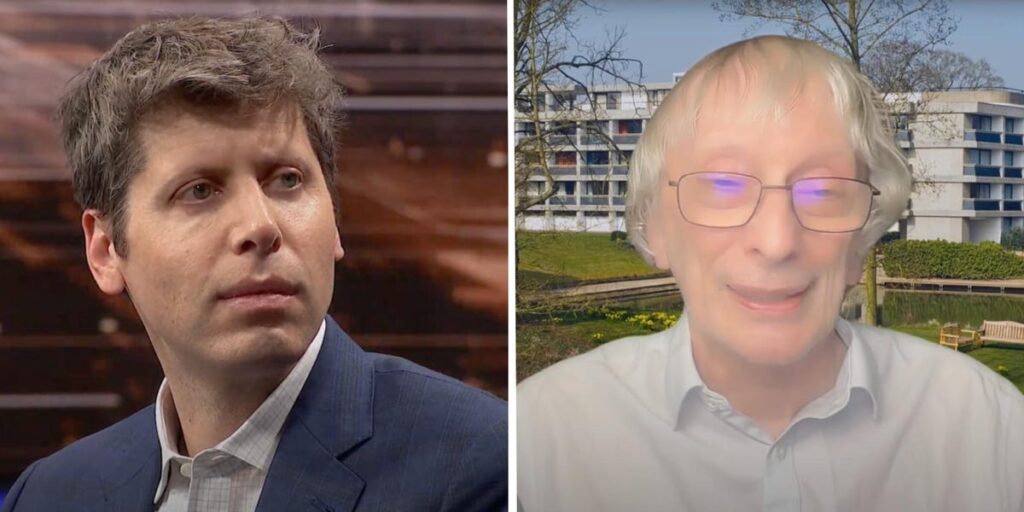For decades, experts have debated how to tell when machines cross into true intelligence. On Wednesday in Berlin, OpenAI CEO Sam Altman and British physicist David Deutsch agreed on a new benchmark: If an AI could crack quantum gravity — and explain why — that might be enough to call it human-level smart.
Altman stopped at Axel Springer’s headquarters on Wednesday evening to meet with tech leaders and collect an award. That night, in a fireside chat, publisher Mathias Döpfner asked about Altman’s favorite book — Deutsch’s “The Beginning of Infinity” — and then promptly beamed the author onto a screen, to Altman’s obvious delight.
Altman, the builder betting on scale and iteration to achieve AGI, was suddenly face-to-face with on-screen Deutsch, the British physicist known as the father of quantum computing and a philosopher of science who doubts that brute-force training will ever produce true minds.
The exchange played less like a debate than a meeting of the mutual admiration society. Deutsch said he once thought no computer could hold an open-ended conversation without being an AGI.
“ChatGPT proved me wrong,” Deutsch told Altman. “It’s not an AGI, and it can converse.”
Deutsch, however, drew a hard line between chatty software and real intelligence. Large language models can talk endlessly because they are trained on huge bodies of knowledge, he said.
In his mind, genuine intelligence is the ability to create knowledge — spot a problem, invent a solution, test it, and improve it as humans do.
He called upon Einstein’s theory of relativity. “Some people have fun questioning whether Einstein really created the theory of relativity,” Deutsch said, “or only assembled it mechanically from a smorgasbord of existing ideas. We know he created it because we know his story, what problems he was addressing, and why.”
Deutsch extended the point to Altman. “Without having to write any code, [he] brought ChatGPT into existence as a product and a phenomenon by having the intuition and the gumption to know that this was the right thing for humanity to try next.”
“Nothing can program a computer to have such intuition — yet,” he quipped.
Then Altman pushed a hypothetical. If a future model “figured out quantum gravity and could tell you its story” — the problems it chose, the reasons it pursued them — “would that be enough to convince you?” he asked.
“I think it would, yes,” Deutsch replied.
Altman smiled. “I agree to that as the test.”
You can watch the full interview here.
Read the full article here


